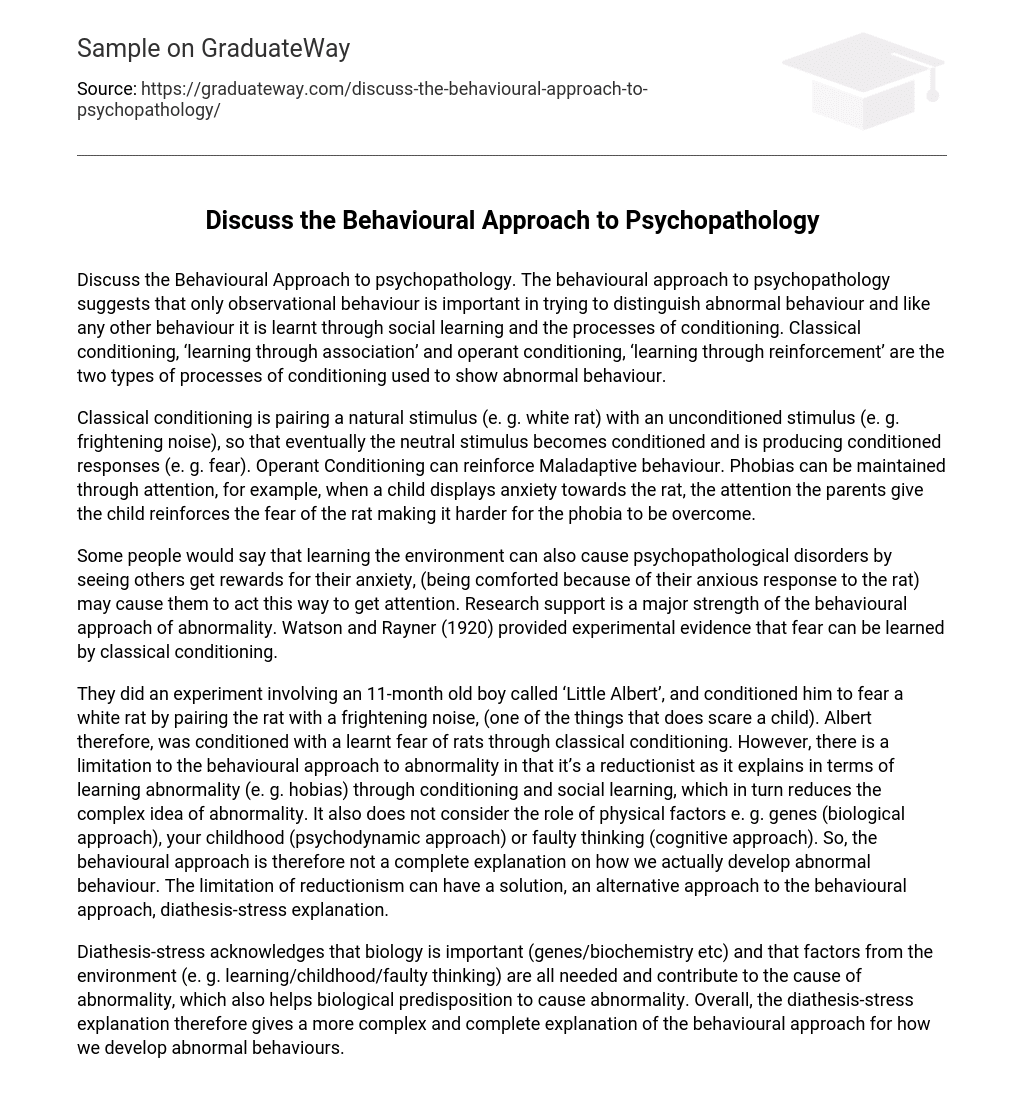Discuss the Behavioural Approach to psychopathology. The behavioural approach to psychopathology suggests that only observational behaviour is important in trying to distinguish abnormal behaviour and like any other behaviour it is learnt through social learning and the processes of conditioning. Classical conditioning, ‘learning through association’ and operant conditioning, ‘learning through reinforcement’ are the two types of processes of conditioning used to show abnormal behaviour.
Classical conditioning is pairing a natural stimulus (e. g. white rat) with an unconditioned stimulus (e. g. frightening noise), so that eventually the neutral stimulus becomes conditioned and is producing conditioned responses (e. g. fear). Operant Conditioning can reinforce Maladaptive behaviour. Phobias can be maintained through attention, for example, when a child displays anxiety towards the rat, the attention the parents give the child reinforces the fear of the rat making it harder for the phobia to be overcome.
Some people would say that learning the environment can also cause psychopathological disorders by seeing others get rewards for their anxiety, (being comforted because of their anxious response to the rat) may cause them to act this way to get attention. Research support is a major strength of the behavioural approach of abnormality. Watson and Rayner (1920) provided experimental evidence that fear can be learned by classical conditioning.
They did an experiment involving an 11-month old boy called ‘Little Albert’, and conditioned him to fear a white rat by pairing the rat with a frightening noise, (one of the things that does scare a child). Albert therefore, was conditioned with a learnt fear of rats through classical conditioning. However, there is a limitation to the behavioural approach to abnormality in that it’s a reductionist as it explains in terms of learning abnormality (e. g. hobias) through conditioning and social learning, which in turn reduces the complex idea of abnormality. It also does not consider the role of physical factors e. g. genes (biological approach), your childhood (psychodynamic approach) or faulty thinking (cognitive approach). So, the behavioural approach is therefore not a complete explanation on how we actually develop abnormal behaviour. The limitation of reductionism can have a solution, an alternative approach to the behavioural approach, diathesis-stress explanation.
Diathesis-stress acknowledges that biology is important (genes/biochemistry etc) and that factors from the environment (e. g. learning/childhood/faulty thinking) are all needed and contribute to the cause of abnormality, which also helps biological predisposition to cause abnormality. Overall, the diathesis-stress explanation therefore gives a more complex and complete explanation of the behavioural approach for how we develop abnormal behaviours.





